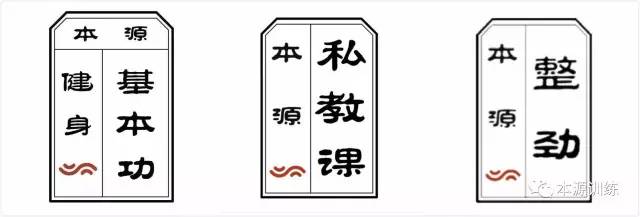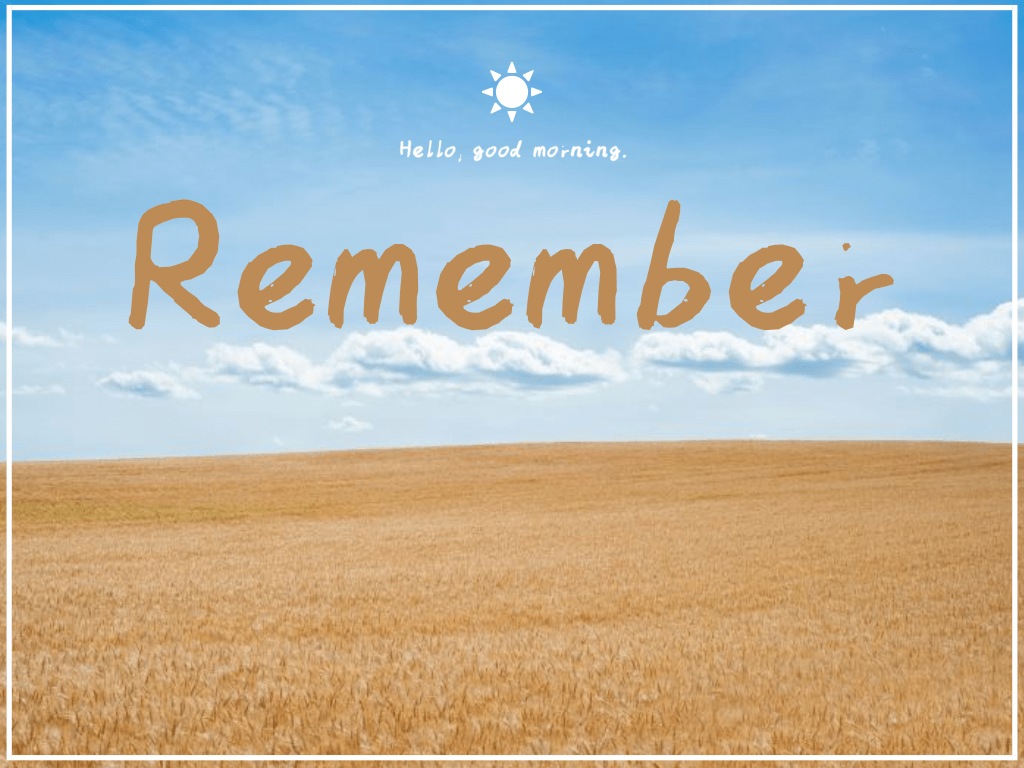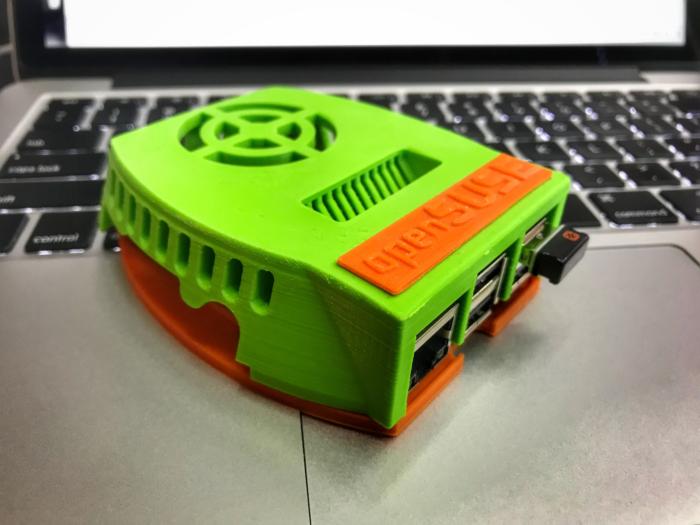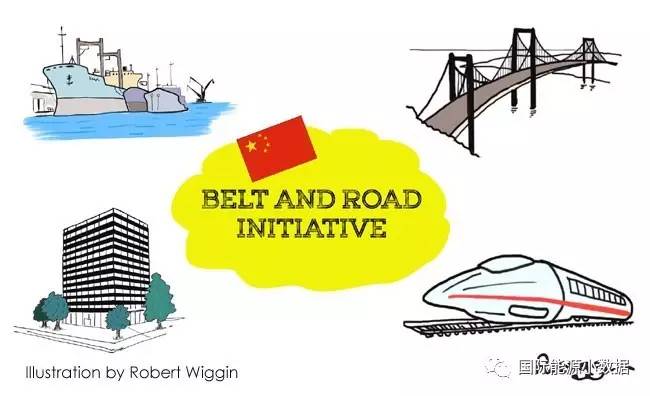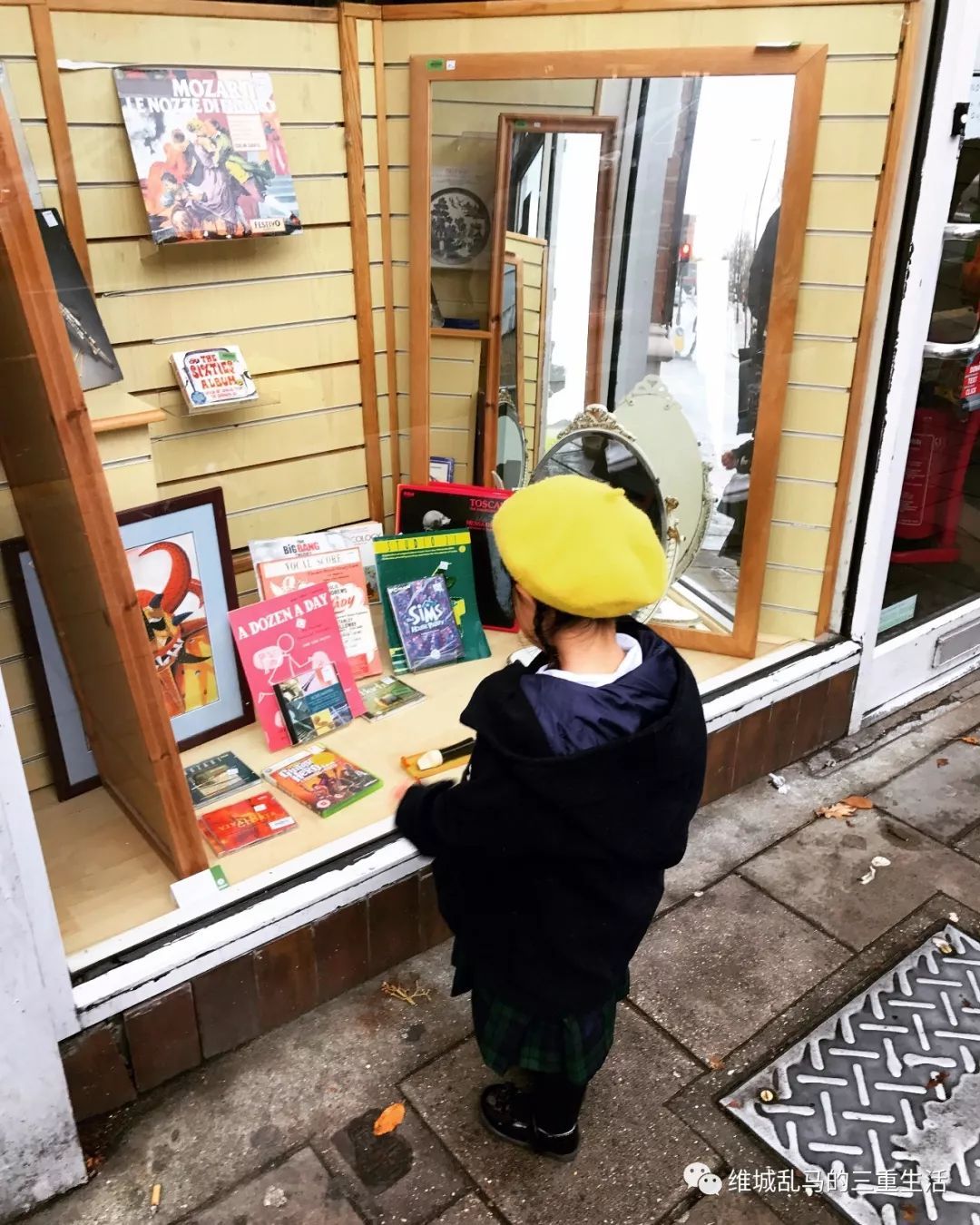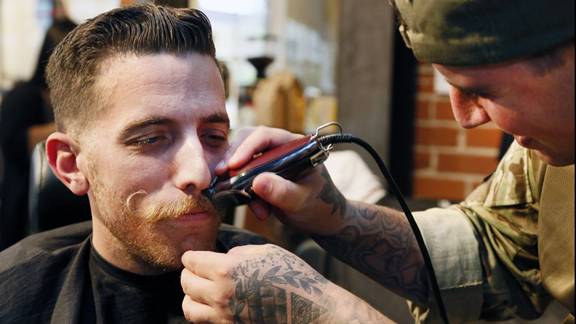Unit5 Signs 单元知识归纳
一、词组
1、在购物中心 at a shopping centre
2、当心!小心!Be careful
3、看见标志 see the sign
4、一家果汁店 a juice shop
5、想要一些果汁 want some juice
6、进入go in
7、带着你的果汁进入商店
take your juice into the shop
8、吃面eat some noodles
9、在一家饭馆 at a restaurant
10、 闻到它 smell it
11、请勿饮食!No eating or drinking!
12、请勿乱丢垃圾!No littering!
13、请勿停车!No parking!
14、请勿吸烟!No smoking!
15、危险!Danger!
16、 小心地滑!Wet floor!
17、这么高兴 so happy
18、在英国 in the UK
19、在美国 in the US
20、把地铁叫做“underground” call the metro"underground"
21、把地铁叫做“subway” call the metro ”subway”
22、外出游玩 be on an outing
23、在森林中 in the forest
24、该吃午饭了time for lunch
25、感到又累又饿 feel tired and hungry
26、寻找我的香蕉look for my bananas
27、带些作午餐bring some for lunch
28、给山姆一个香蕉give Sam a banana
29、要一个 want one
30、继续走 keep walking
31、在一棵树上发现标志 find a sign on the tree
32、吃香蕉 eat bananas
33、看见许多猴子围着他们
see a lot of monkeys around them
34、看着鲍比的香蕉look at Bobby’s bananas
35、知道为什么 know why
36、一些公共地方 some public places
37、禁止践踏草坪!Keep off the grass!
38、请勿钓鱼!No fishing!
39、请勿游泳!No swimming!
40、请勿携带宠物!No pets!
41、保持安静!Be / Keep quiet!
42、请勿爬树!No climbing!
43、请勿奔跑!No running!
44、请勿拍照!No cameras!
45、请勿打电话!No mobile phones!
二、句型
1.What does it mean? 它表示什么意思?
It means the floor is wet.它表示地是滑的。
It means you can’t litter here.
它表示你不能在这儿乱丢垃圾。
It means you can’t eat or drink.
它表示你不能吃或喝。
It means you can’t smoke here.
它表示你不能在这儿吸烟。
2. No eating or drinking!请勿吃喝!
3. No littering!请勿乱丢垃圾!
4. No parking!请勿停车!
5. No smoking!请勿吸烟!
6. Danger!危险!
7. Wet floor!小心地滑!
8. Be careful!当心!
9. Do you want some juice?
你想要一些果汁吗?
10. What do these signs mean?
这些标志什么意思?
11. Helen wants to go in.海伦想要进来。
12. Is someone smoking?有人吸烟吗?
13. I can smell it.我能闻到它。
14. Bobby and Sam are>鲍比和山姆在森林里游玩。
15. I know why we shouldn’t eat bananas here!
我知道为什么我们不应该在这儿吃香蕉了!
三、语音
ir bird dirty girl shirt skirt birthday
thirty thirsty first third circle
四、语法
1、公共标识的英文构成方式有:
● No+ doing, 如:No smoking! No eating or drinking!...
● No+名词复数 如:No pets! No cameras!...
●名词或名词短语 如:Danger!…
● 祈使句,如Turn right! Be quiet!...
2、No eating or drinking! 请勿饮食!
●在否定句中,如果要否定两种或多种事物时,一般要用连词or,意思是“也不”。如:
He can’t read or write. 他不会读,也不会写。
He never smokes or drinks. 他从不抽烟,也不喝酒。
3、You can’t take your juice into the shop, Helen.海伦,你不能把果汁带进书店里。
●take和 bring在意义和用法上的区别:
一般来说,take 表示从说话者所处位置向另一处,意思是“带去”;而bring表示从别处向说话者所处位置,意思是“带来”。如:
Su Yang, please bring the book to me and take the flowers to Helen.苏洋,请把那本书拿给我,再把这些花带给海伦。
4、Bobby and Sam are>●on an outing 是“在远足”、“在郊游”的意思。表示“去郊游”时,还可以说go>●on 在这里用于说明活动或状态,表示“在从事……中”、“处于……情况下”的意思。
5、Bobby and Sam walk>●on 在这里是个副词,意思是“继续下去”。
The lesson goes>6、on the tree 和in the tree 的区别:
on the tree 表示东西附着在树上或者花果等东西长在树上。如:
There are many pears>in the tree 表示外来的东西在树上。如:
Look! There is a bird in the tree. 瞧!树上有一只鸟。
英语六年级上Unit 6 知识点梳理
一、单词、短语和句子
- keep our city clean (cities) 保持我们城市整洁
- these pictures of our city 我们城市的图片
- What makes our city dirty? 什么使我们的城市变脏?
4. smoke from cars 汽车尾气
5. black smoke from factories
来自工厂的黑烟
6. make the streets messy and dirty
使街道变得又脏又乱
7. in the water 在水里
8. The fish are dead. 鱼死了。
dead fish 死鱼
9. What can we do to keep our city clean?
为了保持我们的城市整洁,我们可以做什么?
10. take the bus and the metro to school
乘公共汽车和地铁去上学
11. walk to school 步行上学
12. move some factories away from our city
把工厂搬走
13. put rubbish in the bin 把垃圾扔进垃圾桶
14. plant more trees 种更多的树
15. help keep the air clean有助于保持空气洁净
16. a good idea 一个好主意 an idea
17. Well done! 做得好!
18. We can also… 我们还可以……
19. give a speech>针对这个话题做个演讲
20. sweep the floor 扫地
21. clean the desks and chairs 擦桌子和椅子
22. throw rubbish>23. two little blackbirds 两只小黑鸟
24. sit>25. fly away 飞走
26. come back 回来
27. walk home 步行回家
28. after school 放学后
29. like living in the city 喜欢住在城市里
30. many cinemas 许多电影院
31. throw a banana skin> 把香蕉皮扔在地上
32. pick it up 捡起它
33. too late 太迟了
34. slip> 35. go to hospital去医院(看病)
36. how to keep our school clean
如何保持我们学校整洁
37. To keep the park clean, we can put rubbish in the bin. = We can put rubbish in the bin to keep the park clean.
38. The clothes make the bed messy.
衣服使床乱了。
二、重难点
1. keep our city clean
keep既是实义动词又可以做系动词,其中做系动词的时候,后面加上形容词。
keep quite 保持… 过去式kept keep fit
keep sth / sb.+形容词,表示“保持某人或某物的某种状态”。
Please keep your clothes clean.
Put> keep的其它用法:
keep off 远离,避开,让开
keep off the grass
keep sb. from doing sth. 阻止某人做某事
keep doing sth. 一直做某事
keep a pet 养宠物
2. put…in/on/under…意为:把…放在…里/上/下
其中put> put>3. pick…up 捡起,拾起。后面接的人称代词的时候要用宾格,并且放在pick up中间,如:pick it up, pick them up。如果后面接的是名词时,可以放在中间或是后面, pick the pen up / pick up the pen
4. slip> slip的现在分词slipping 过去式slipped
5. walk home = go home>步行回家,其中“home”是副词,walk后不需要加介词to,用法类似的有here,there come here go there walk there
其他表示地点的名词和walk连用时,要加to 如:walk to the park
6. I like living in the city。live in 是居住在哪里,强调的是地点 live with 和谁一起住,强调的是人,并且后面用宾格。
7. What makes our city clean? make+复合宾语(名/代词+形)表示“使...变得...” make me sad
Rubbish makes the streets messy and dirty.
Fruit can make us healthy and strong.
注意:make前是特殊疑问词what, who, which等作主语时,这些疑问词相当于第三人称单数,所以一般现在时动词make加s
8. smoke 既是动词,吸烟,又是不可数名词:烟雾 雾霾smog
9. What can we do to keep our city clean? 句中“to”意思是“为了”,表示目的。 to+V原形
Tina’s friends come to see her.
10. fall down 倒下来 fall的过去式fell fall作为名词,秋天(autumn)
11. keep quiet 保持… keep+形容词
keep off 远离,避开,让开 keep off the grass
keep sb. from doing sth. 阻止某人做某事
keep doing sth. 一直做某事 keep a pet 养宠物
12. They help keep the air clean. 它们有助于保持空气洁净。
help 和keep之间的to省略了。
Can you help (to) open the window?
Let me help (to) sweep the floor.
help sb. do sth. 帮助某人做某事
I often help my mother cook dinner>13. go to hospital / go to the hospital
前者为去医院看病,后者为去医院上班或者看病人。类似的有in hospital / in the hospital
14. We can move some factories away from our city. 我们可以把一些工厂从城市搬走。
Move…away是“搬走”、“移走”的意思。
Please move your car away. 请把你的车开走。
15. 不可数名词:air/ smoke /juice /milk/ water /tea /coffee /bread/ news/ paper/ rubbish
译林版英语六年级上Unit 7 知识点梳理
一、语音
oo / u / look good cook book football
wood classroom bedroom
/ u: / cool food room school zoo cartoon balloon
foolish moon afternoon soon tooth
二、单词、短语和句子
- protect the Earth 保护地球
- save and reuse water 节约水
3. Water is useful. 水是有用的。
a useful book 一本有用的书
4. drink water 喝水
5. use water to clean things
用水洗东西
6. in many places 在许多地方
7. There is not much water.
没有大量的水。
8. waste water 浪费水
9. save energy 节约能源
10. most of our energy 我原由网们的大部分能源
11. come from coal and oil 来自煤炭和石油 come from=be from 12.>13. drive so much 过多开车 (drive away把…赶走)
14. use a lot of energy 消耗大量能源
15. save trees 节约树木
16. come from trees 来源于树木
17. use wood to make tables 用木头做桌子
18. many other things 许多其它东西
19. cut down too many trees 砍伐太多的树木
20. use too much plastic 使用太多的塑料
21. use plastic to make bags and bottles
用塑料制作袋子和瓶子
22. be bad for the Earth 对地球有害
(be good for对……有益)
23. too many plastic bags 太多塑料袋
24. paper bags 纸袋子
25. glass bottles 玻璃瓶子
26. How to protect the Earth?
如何保护地球?
27. collect some paper 收集一些纸
28. reuse paper to make a box
再次利用纸做一个盒子
29. make a toy 制作一个玩具
30. have fun in the classroom
在教室里玩得开心
31. every morning and afternoon原由网
每个早晨和下午
32. Earth Day is> 地球日在四月二十二日。
33. World Environment Day is> 世界环境日在六月五日。
34. make a poster with your classmate
和你的同学一起做一张海报
35. do a projec//www.58yuanyou.comt 做一个课题
36. tell them about our school
告诉他们有关我们学校的事
37. start drawing 开始画画
38. let me draw the moon first
让我先画月亮
39. look nice 看上去漂亮
40. a rubbish bin 一个垃圾桶
41. The poster is ready. 海报准备好了。
be ready for…
42. at the school gate 在学校大门处
43. What a nice poster! How nice the poster is! 多漂亮的海报啊!
44. What should we do to protect the Earth?
为了保护地球,我们应该做什么?
What should we not do to protect the Earth? What shouldn’t we do to protect the Earth?
45. really cool 真的很酷
46. tell / ask sb. to do sth. 要求某人做某事
三、重难点
1. We use water to clean things.
a. use作为动词,s发/ z / :use…to do sth. 用…做某事 use wood to build a house
use 还可以和as连用,表示“使用…作为…” The baby's using the spoon as a toy.
b. use作为名词,s发/ s / : make good use of…充分利用
c. useful形容词,s发/ s /: 有用的,useful things
2. many 后面接可数名词的复数,too many “太多”后面加上可数名词的复数
much 后面接不可数名词,表示“很多,许多”, too much “太多”后面加上不可数名词
We should not use too many plastic bags.
Eating too much is not good for us.
3. most of “…中的大部分”,后面加上可数名词复数或是不可数名词
Most of them feel unhappy.
4. Wood comes from trees .木头来源与树木。
句中“come from ”表示“源于”或是“来自于…地方”和“be from 意思相同”
5. We should not cut down too many trees because trees help keep the air clean.
a. cut down 意识是“砍伐,砍掉”
b. help do sth.表示“帮助,有助于”
c. help sb. do sth.是一个比较常用的结构,也可以说help sb. to do sth.”帮助某人做某事”
6. Too much plastic is bad for the Earth.
句中“be bad for”是固定用法,表示“对…有害”,反义词组是:be good for“对…有益”,for后面加名词 。 Dirty water is bad for our health.
7. 日期前面加上介词on,星期前面加上on
at+时间, in+年/月/早/中/晚/四季
日期的表示方法:⑴the+序数词+of+月份 ⑵月份 the+序数词
8. start doing start to do 表示“开始做…”
9. They put it at the school gate.他们把它贴在学校的大门上。at the school gate “在学校的大门上”介词使用at (小地点用at,大地点用in)
10. The poster is ready. 海报准备好了。固定搭配:be ready for…为…做准备
a. ready to do sth. 随时可以… (乐意,即将)
I’m ready to have the English test.我准备好了随时参加英语考试。
b. be ready for sth. 为...做好准备
He is ready for the speech. 他准备好了发言。
He is ready for giving the speech.
11. Protect the Earth 保护地球
Earth 有“地球”、 “陆地”、“泥土”等意思,而要表示人类居住的“地球”,则常用the Earth。
There is not much coal or oil>
What>12. We should not drive so much because cars use a lot of energy.
此句中的much 是副词,表示行为、感情或变化的强烈程度,常与very,so,too等词连用。
Thank you very much.
I don’t know why she cried so much?
She talks too much.
13. Bobby and Sam are doing a project. 此句中project是“课题,研究项目”的意思
They are doing a project>14. home主要指家庭成员所居住的那种环境与房屋。
They have a happy home in London. His home is not far from here.
house表示“房屋、住宅”,主要指居住的建筑物。
My uncle’s house is very beautiful.
family 主要指家庭成员,一般不涉及房屋。
How many people are there in your family?
四、文化板块
每年的4月22日是世界地球日,它旨在唤起人类爱护地球、保护家园的意识,促进资源开发与环境保护的协调发展,进而改善地球的整体环境。
每年的6月5日是世界环境日,它是联合国促进全球环境意识、提高政府对环境问题的注意并采取行动的主要媒介之一。联合国环境规划署每年6月5日选择一个成员国句型“世界环境日”纪念活动。发表《环境现状的年度报告书》及表彰“全球500佳”,并根据当年的世界主要环境问题及环境热点,有针对性地制定每年的“世界环境日”主题。
译林版英语六年级上Unit 8 知识汇总
一、单词、短语和句子
1.Chinese New Year 中国新年
Spring Festival
2.get an email from her e-friend 收到一封来自她网友的电子邮件
3. in Hong Kong 在香港
4. It’s going to be Chinese New Year next week. 下周将是春节了。
5. How to write an English email?
如何写一封英文的电子邮件?
6. buy some new clothes and food
买一些新衣服和食品miqRUgnapi
7. make some cakes and tangyuan
做一些蛋糕和汤圆
8. on Chinese New Year’s Eve 在除夕
9. have dinner with my grandparents
和我的祖父母一起吃晚饭
10. my aunt and uncle 我的叔叔和阿姨
11. my cousin 我的表妹
12. buy some flowers 买一些花
13. on Chinese New Year’s Day 在大年初一
14. give me red packets 给我红包
15. watch a lion / lion dance 看舞狮 / 龙
16. on the second day of Chinese New Year在春节第二天
17. watch fireworks 看烟火表演
18. at Chinese New Year 在春节
19. before Chinese New Year 在春节前
20. look at a cookbook 看着一本烹饪书
21. look for something good 寻找好东西
22. cook us something good 为我们做点好东西 23. the most important holiday 最重要的节日
24. the most important festival 最重要的节日
25. Thanksgiving 感恩节
26. cook dumplings 煮饺子
27. in the kitchen 在厨房里
28. get red packets 得到红包
29. be rich 富有 poor 贫穷
30. talk about their plans for… 谈论他们…的计划
31. What are you going to do tomorrow?
你明天打算干什么?
32. see Aunt Alice 看望Alice阿姨
33. What a nice cake! How nice the cake is!
多美味的蛋糕啊!
34. write an email to Anna
给Anna 写封电子邮件
35. It was nice to get your email.
收到你的弟子邮件真好。
36. buy a lot of things 买许多东西
37. light some firecrackers and fireworks
燃放一些鞭炮和烟花 lit, lighted
38. say “Happy Chinese New Year” to them
对他们说“新年快乐”
39. give us red packets= give red packets to us 给我们红包
40. Who are you going to visit?
你打算拜访谁?
41. What places are you going to visit?
你打算参观什么地方?
42. talk about Chinese New Year
谈论春节
43. There is going to be a football match tomorrow. 明天将有一场足球赛。
二、重难点
1. 一般将来时态
表示将要发生的事情或计划打算做某事。
将来时态的时间状语:tomorrow… next… in the future the day after tomorrow
this afternoon / evening in +一段时间 soon 等。
结构:be going to+动词原形 (计划、打算做)
Will+动词原形 (将要…) 第一人称用shall
一般将来时的四种基本句型:
I’m going to play football next week.
(肯定句)
I’m not going to play football next week.
(否定句)will not = won’t shall not=shan't
Are you going to play football next week? Yes, I am. / No, I’m not.(一般疑问句)Shall we…?
What are you going to do next week?
(特殊疑问句)
注意be 动词的将来时
It is going to be Chinese New Year next week.
I’m going to be twelve years old next year.
There is going to be a football match next week.
本句是一般将来时态的肯定句,它的结构是“主语+be going to+动词原形+其他。”其中be动词根据主语的人称变化,用am, is, are等形式。
2. We are going to make some cakes and tangyuan. 我们准备做一些蛋糕和汤圆。
本句中make的意思是“制作”,make和其他的单词搭配,构成不同的词组:
make sth. into sth.“讲某物质做成某物”
make sth. from/of sth.“用某物制造某物”(from看不到原材料, of能看见原材料)www.58yuanyou.com
3. Chinese New Year is coming.春节就要到了。
本句用现在进行时态表示即将发生的动作。表示位置转移go, come, leave, start等动词的现在进行时,常用于表示按计划或安排即将发生的动作。
Helen is going to the library after school. They are leaving for Beijing.
New Year通常指阳历的新年(January 1st ),Chinese New Year是农历新年,相当于Spring Festival. 1月1日是New Year’s Day,农历的“年初一”叫做Chinese New Year’s Day;同样的12月31日叫做New Year’s Eve,农历新年的除夕叫做“Chinese New Year’s Eve”
4. Bobby and Tina are talking about their plans for Chinese New Year’s Day.
本句中talk about 的意思是“谈论关于….”而“关于…计划”用介词“for”,
Plan还可以用作动词,plan to do sth.表示“计划做某事”。
They plan to get there at 3’ clock. 他们计划三点到达那里。
注意:plan作为动词,变形时要双写n, 如:planning planned
5.>on 的用法
a. 表示“在具体的某一天”如:在4月22日:on 22nd April
b. 表示“在某个节日”并且节日名称中有day或eve >c. 表示在某个特定的早晨、下午、或晚上 He came to the town>at 的用法
a. 表示某时间点、某时刻 They will come home at the end of the year.
b. 表示“某个节日”并且节日名称前没有day或eve. He is going shopping at Christmas.
6. I’m very excited.我非常兴奋。
人+be +excited 事/物+be +exciting excitedly 副词
7. 写信的格式
(1)信封的地址栏顺序:从小地点到达地点
Suzhou Golden Primary School, SND, Jiangsu Provence, China
(2)Email的写法:一封英语电子邮件通常一般由收件人名字、邮件主题和邮件正文构成。邮件正文包括称呼、问候语、邮件正文、结束语和发件人名字。如果是较正式的邮件,称呼语一般为“Dear Miss / Mr…”,也可以在Dear后面直接加上收件人的名字。如果是朋友之间互相写邮件,称呼可以为Hi…,如Hi, Nancy. 结束语写在正文的下面,正式邮件中可用Best wishes / regards/ Thanks, 朋友之间可以用Love为结束语。结束语的下面是发件人的名字。
To后边加的是收信人
8. 其它节日:
Teachers’ Day 教师节
Children’s Day 儿童节
Women’s Day 妇女节
Mother’s Day 母亲节
Father’s Day 父亲节
Easter 复活节
Christmas / Christmas Day 圣诞节 Thanksgiving Day 感恩节
New Year’s Day 元旦
Chinese New Year/ Chinese New Year’s Day
中国的新年
Spring Festival 春节
National day 国庆节
Dragon Boat Festival 端午节
Mid-Autumn Festival 中秋节
Qing Ming Festival 清明节
Double Ninth Festival 重阳节
三、文化板块
Christmas is the most important holiday in the UK.
Chinese New Year is the most important festival in China. We also call it “Spring Festival”.
Thanksgiving is a very important holiday in the US.
圣诞节原本是一个宗教节日,后来逐渐发展成为一个具有全球性意义的节日。英国人非常重视圣诞节,通常连着新年,一并庆祝。圣诞节的食品包括火鸡、圣诞布丁、土豆沙拉等。圣诞节的装饰品也是琳琅满目,圣诞树、圣诞袜、圣诞老人和他的坐骑、花环等都是装点圣诞节的必备。
春节是中国最富有特色的传统节日。中国人过春节已超过4000多年的历史。春节的活动丰富多彩,有扫尘、守岁、拜年、贴春联、燃放爆竹等。
感恩节是美国和加拿大两国特有的节日。最初是由来自欧洲大陆的移民创立的,原意是为了感谢上帝赐予的好收成和印第安人的帮助。后来感恩节也逐渐演变成一个全国性的节日,并固定在每年11月的第四个星期四。
